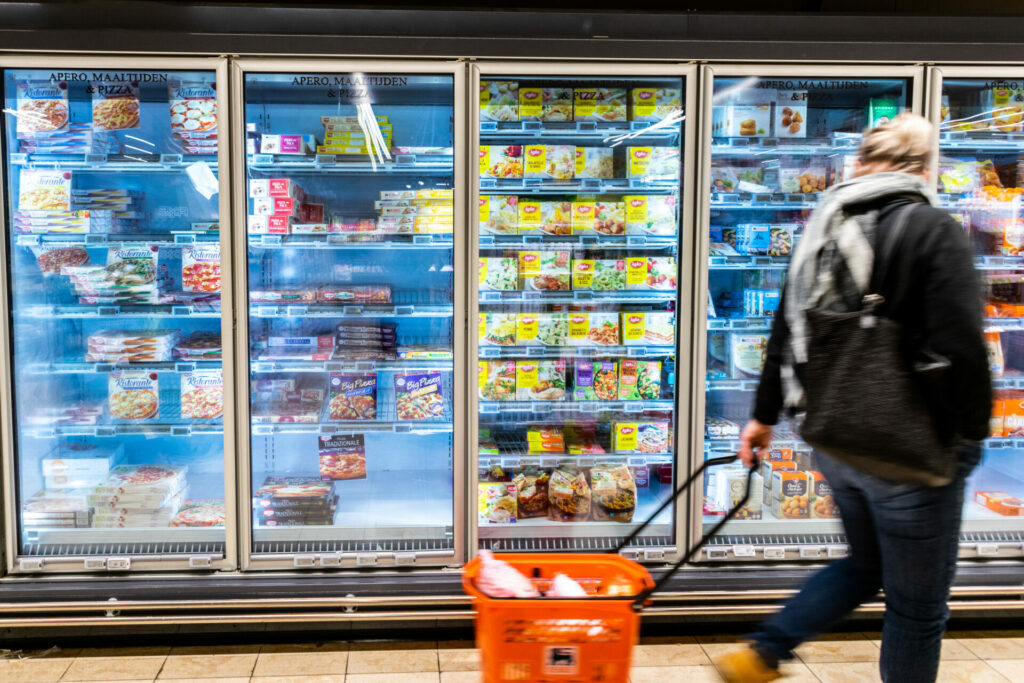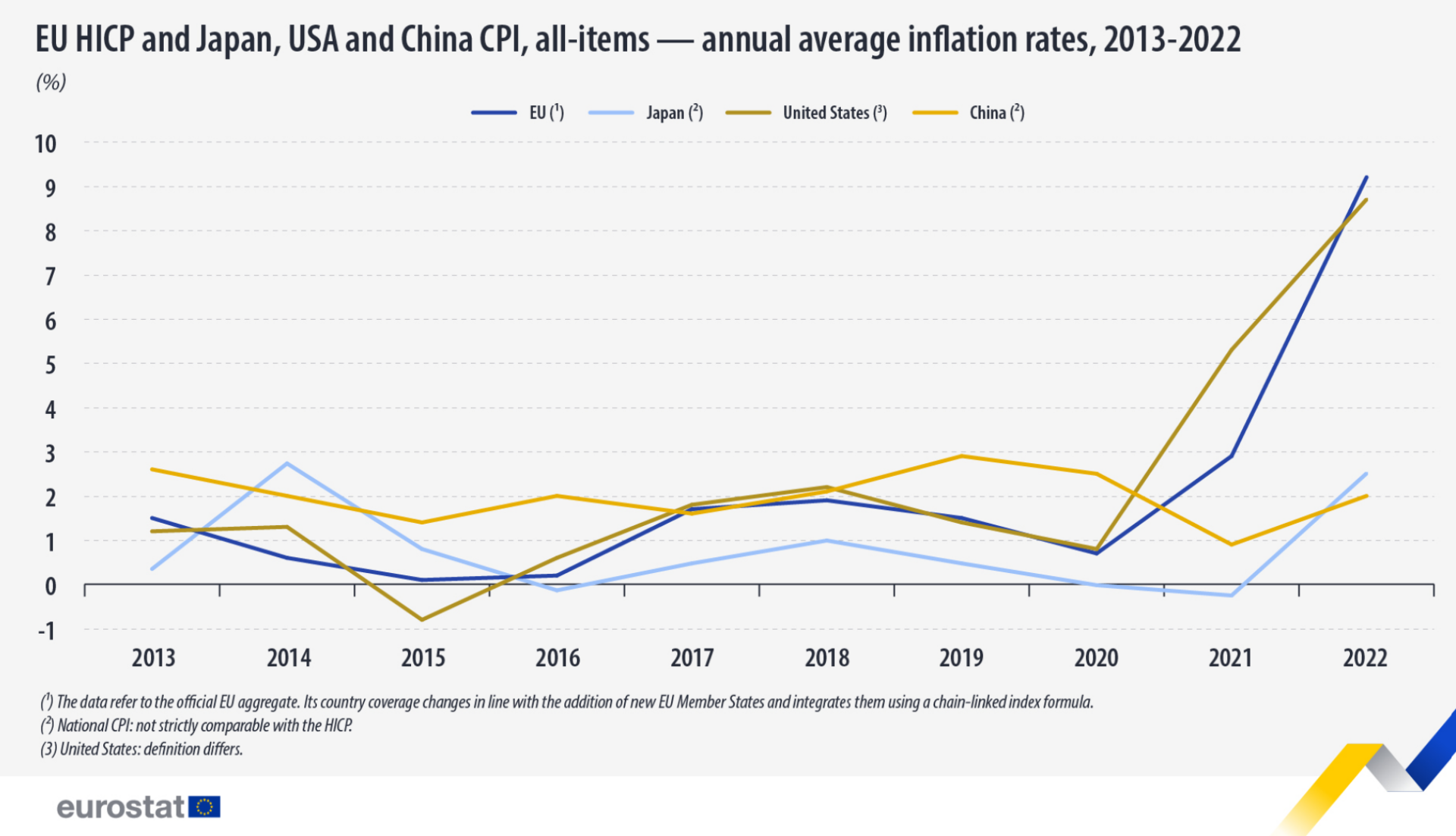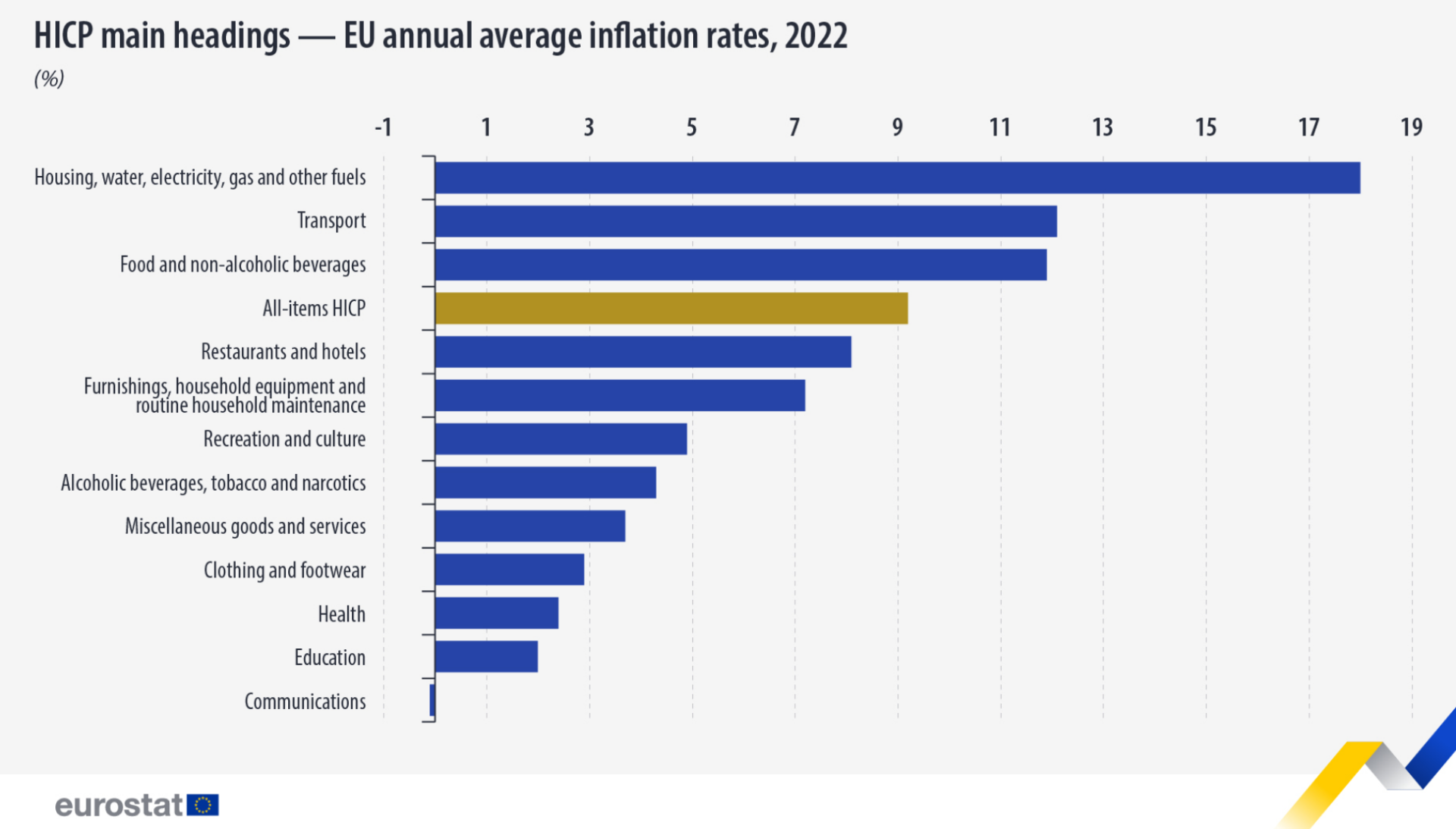Annual inflation in the EU more than tripled over the course of last year, as soaring energy and food prices led to a severe cost of living crisis for citizens across much of the continent.
According to a report published on Thursday by Eurostat, the EU's official statistics office, average inflation in the bloc rose from 2.9% in 2021 to 9.2% in 2022. The study further noted that last year's price rise was almost four-and-a-half times greater than the average EU inflation rate over the period 2013-2022 (2.1%).
In addition, the study found that the bloc's inflation rate far exceeded price rises in most of the world's other major economies, including Japan (2.5%) and China (2.0%). It was also found to be notably greater than the US rate (8.5%).
On average, over the 2013-2022 period, the EU registered the second-highest inflation rate across the four economies measured, after the US (2.3%). Japan and China recorded annual price increases of 0.8% and 1.9% respectively.
Within the EU, prices for housing, water, electricity, gas and other fuels registered the highest increase (18.0%) in 2022. Transport was second (12.1%), while food and non-alcoholic beverages was third (11.9%). Only communications recorded a (marginal) annual price decrease (0.1%).
Meanwhile, according to the office's most recent monthly data, Belgium's inflation rate fell to 7.4% in January: the third consecutive monthly decrease, after peaking at 13.1% in October last year. Belgium's inflation rate is now the seventh lowest in the EU, and well below the average rate both in the eurozone (8.6%) and the wider EU (10.0%).
Despite headline inflation having fallen, Belgium's core inflation rate — which strips out the impact of energy and unprocessed food prices – continues to rise, from 7.1% in December to 8.2% in January. Core inflation has steadily risen in Belgium since March last year.
Related News
- Belgium registers 7th lowest inflation rate in EU
- A worrying trend: Core inflation in Belgium continues to rise
In an interview with Spanish media group Vocento on Sunday, European Central Bank (ECB) President Christine Lagarde noted that rising eurozone inflation will lead the ECB will continue to maintain high interest rates.
"In the short term, core inflation is going to be high," Lagarde said, adding: "We must continue to take whatever measures are necessary to bring inflation back to 2%. And we will do so."



